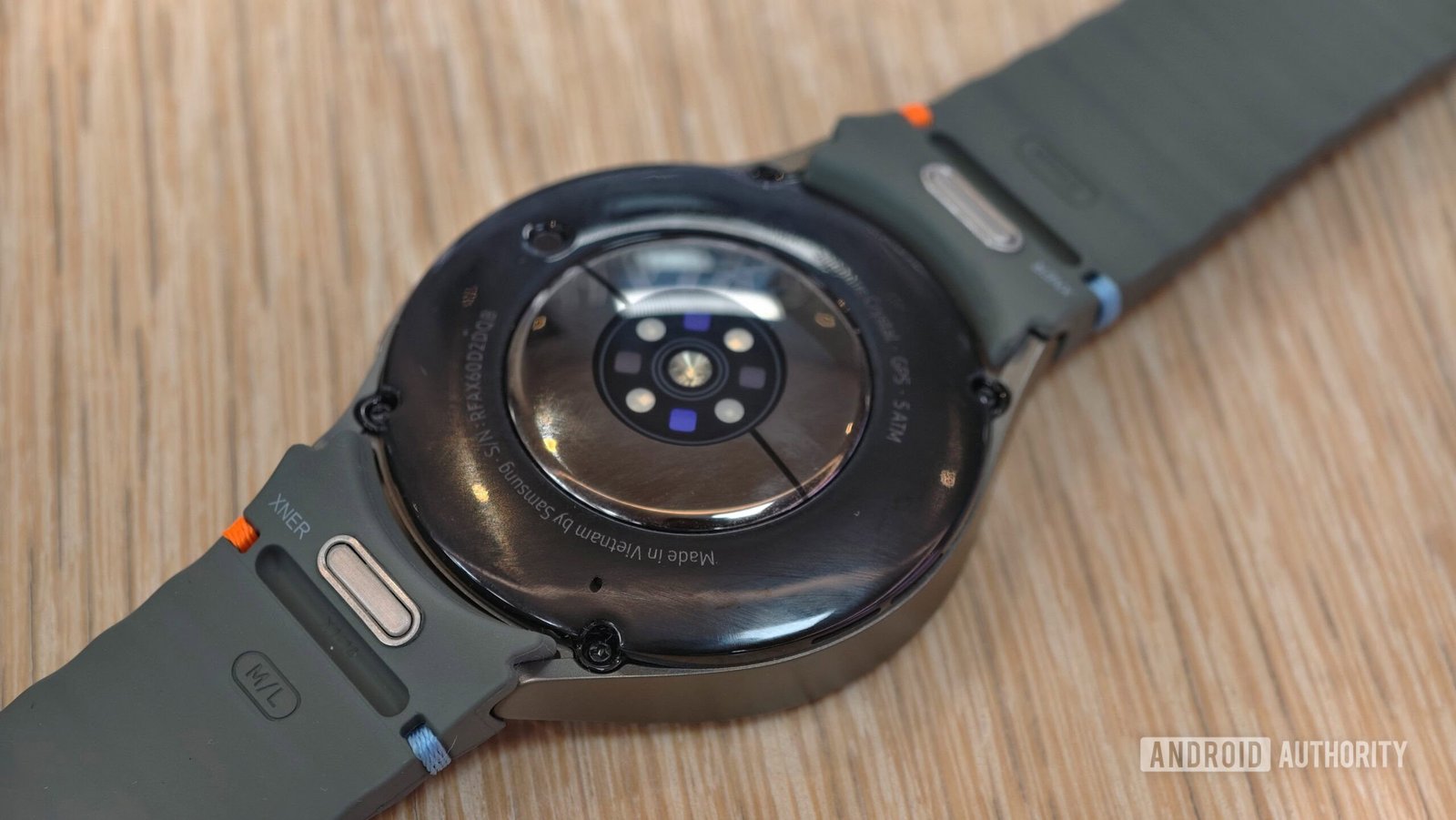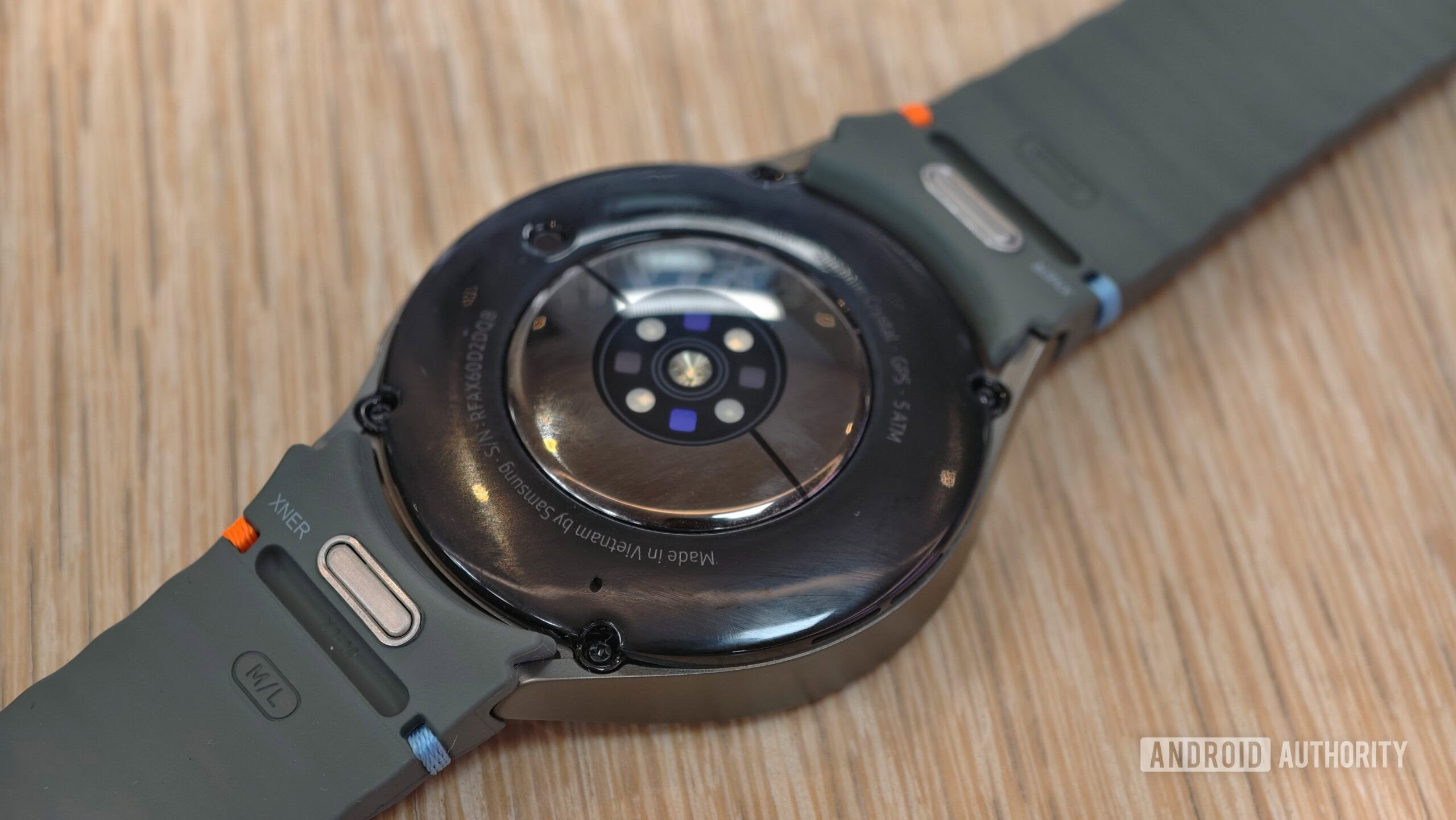
Samsung announces next-gen BioActive sensor, confirms AGEs index feature
-
by Anoop Singh
- 9

Hadlee Simons / Android Authority
TL;DR
- Samsung has upgraded its BioActive Sensor to fit in improved photodiodes and add more LEDs.
- The company claims the upgrade has made the sensor more accurate than its predecessor.
- The sensor is getting a new metabolic health and biological aging measurement feature called AGEs.
In a blog post, Samsung announced its next-generation BioActive sensor that will come in the next Galaxy Watch. The firm states that it was able to double the performance of each photodiode, which allowed it to halve the number of photodiodes in the sensor. As a result, there was enough room to fit more LEDs and add additional LED colors.
If you’re wondering how this improves the sensor, Samsung explains that the extra LEDs make the sensor more accurate when measuring health metrics such as heart rate, sleep quality, blood pressure, blood oxygen levels, and stress levels. For example, the company claims that the measurement of heart rate during intensive workouts is 30% more accurate than before.
In addition to accuracy, Samsung says the improved photodiodes and new LED colors allowed it to create the new AGEs index feature. This feature is described as “an indicator of metabolic health and biological aging strongly influenced by overall lifestyle and dietary habits.” Simply put, the AGEs index is meant to predict trends, like chronic age-related diseases, so you know the preventative measures you need to take to prevent these problems.
During our APK teardown, we were unsure if AGEs would be available for older Galaxy smartwatches. Samsung says the index will be available on the upcoming Galaxy Watch series, but doesn’t say if it will trickle down to the older models. Based on how it’s discussed in the blog, it sounds like the feature needs the new BioActive sensor to work. As such, it seems unlikely you’ll get to use AGEs unless you upgrade your smartwatch.
Hadlee Simons / Android Authority TL;DR Samsung has upgraded its BioActive Sensor to fit in improved photodiodes and add more LEDs. The company claims the upgrade has made the sensor more accurate than its predecessor. The sensor is getting a new metabolic health and biological aging measurement feature called AGEs. In a blog post, Samsung…
Hadlee Simons / Android Authority TL;DR Samsung has upgraded its BioActive Sensor to fit in improved photodiodes and add more LEDs. The company claims the upgrade has made the sensor more accurate than its predecessor. The sensor is getting a new metabolic health and biological aging measurement feature called AGEs. In a blog post, Samsung…
